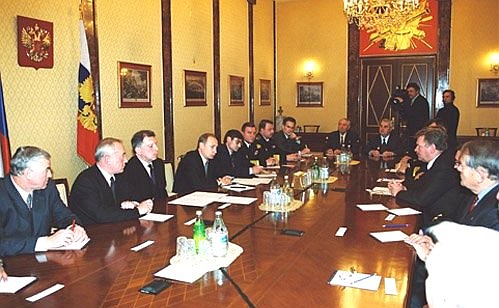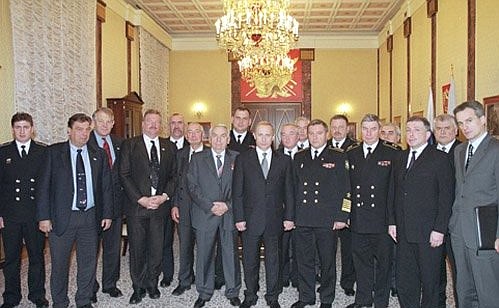For the Russians, raising the Kursk submarine was not only an obligation of national significance, it was above all a moral duty, said President Putin.
He referred to the recovery of the Kursk as a very difficult operation involving, apart from grave technological difficulties, great human expectations.
Russia should and will learn from the tragedy in the Barents Sea on August 12, 2000. We now realise the necessity of a thorough modernisation of the civil fleet and the navy to ensure sailor service safety, and the development of effective search-and-rescue systems, said the President.
The sinking of the Kursk is not the only disaster of this kind. Still, of more than 200 sunken submarines belonging to different countries, the Kursk became the first nuclear-powered ship to be recovered. Saying this, the President admitted that there was ample argument against lifting the boat, but he thinks that his final decision to launch a recovery operation has proved justified. It was Russia’s moral duty to those trapped on the submarine, their relatives and children, said President Putin.
The safest and most efficient method of salvage was used, assisted by the most up-to-date technologies and unique experts. President Putin hailed the operation as “an example of extraordinary international cooperation, with participants from different countries working as a close-knit team”.
The President also drew attention to the detailed media coverage of the operation, which was a high priority.
President Putin thanked all the participants in the rescue operation for their exceptional competence, courage and sincerely performed civil duty.
Over 100 people involved in the Kursk recovery operation have been granted different awards.

